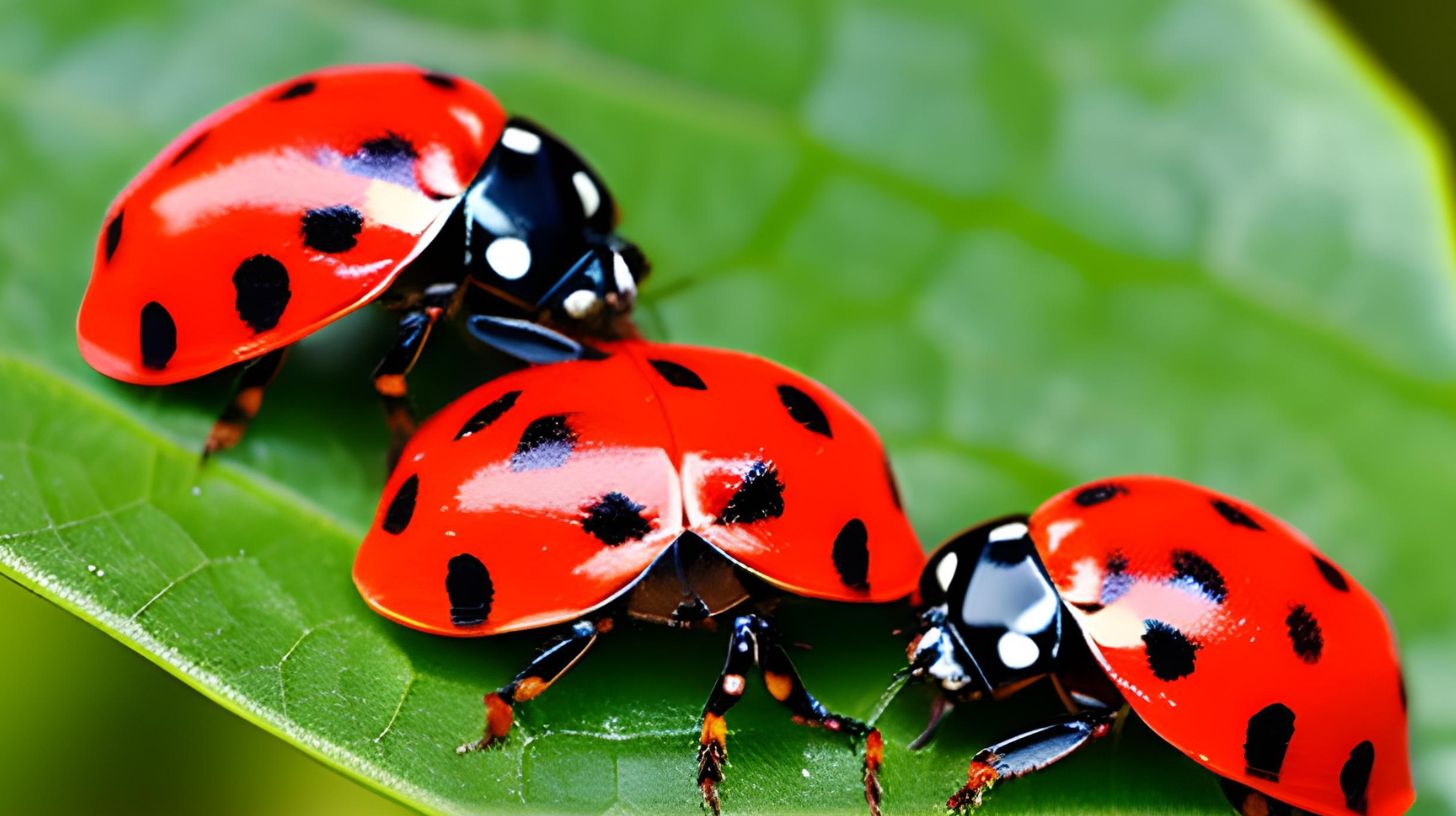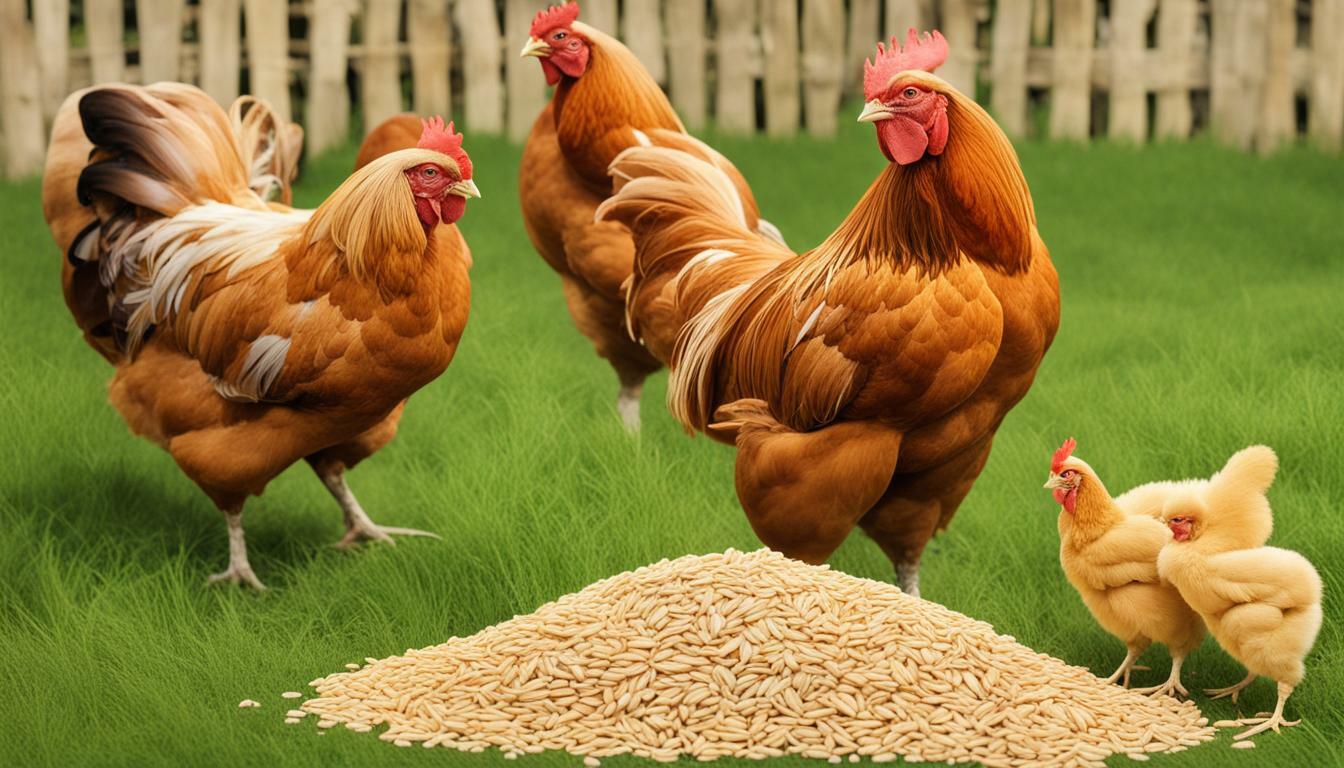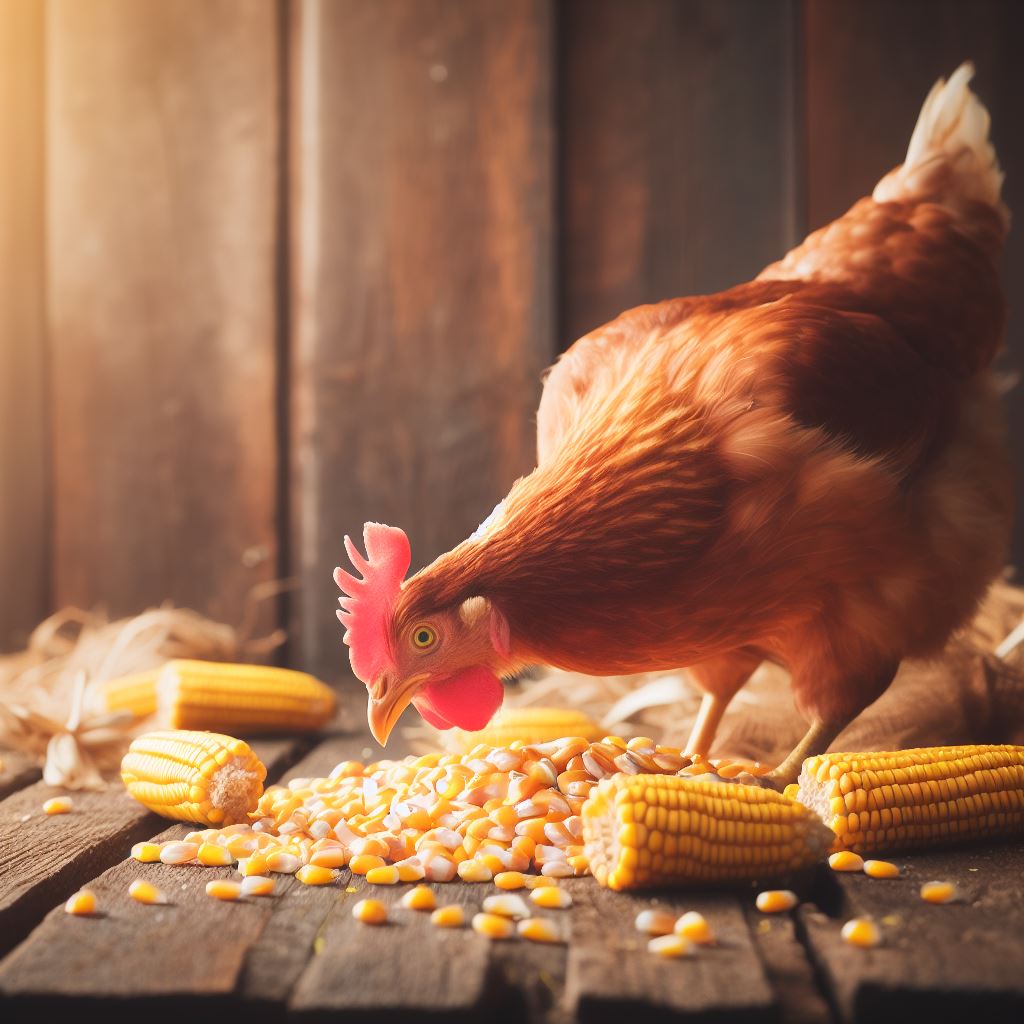Do Chickens Eat Ladybugs? Your Guide to Poultry Diets

Table of content:
- What Do Chickens Eat Besides Chicken Feed?
- Are Ladybugs Harmful to Chickens?
- What Are the Best Natural Pest Controls for Chicken Coops?
- How Can I Increase Protein Intake For My Backyard Chickens?
- What Vegetables and Fruits Can Chickens Eat From the Garden?
- Will Chickens Eat All the Bugs in My Garden?
- What Are the Pros and Cons of Letting Chickens Free Range?
- How Do I Start an All Natural Backyard Chicken Flock?
- What Treats Can I Feed My Chickens?
- How to Get Chickens to Eat Weeds and Pests in the Garden?
- Final Thoughts
Backyard chicken keeping is becoming increasingly popular. Chickens can be a sustainable source of food, great pets, and helpful pest control for your garden. But what do chickens eat besides chicken feed? And will they snack on bugs like ladybugs in your yard? Below are answers to some frequently asked questions about chicken diets.
What Do Chickens Eat Besides Chicken Feed?
Chickens are omnivores and will eat a wide variety of foods besides commercial chicken feed. Some common treats and supplements you can offer your backyard chickens include:
- Fruits – apples, berries, citrus fruits, melons.
- Vegetables – broccoli, cabbage, celery, cucumbers, leafy greens.
- Grains – rice, wheat, oats, barley.
- Table scraps – pasta, bread, eggshells.
- Seeds and nuts – sunflower seeds, chopped nuts.
- Dairy – yogurt, cheese.
- Meat/protein – mealworms, soldier fly larvae, fish, eggs, cooked meat scraps.
- Herbs/greens – basil, mint, parsley, sprouts.
Offer treats in moderation. Around 90% of a chicken’s diet should still come from a complete feed formulated for chickens. Free-ranging allows chickens to forage and supplement their diet with plants, seeds, and insects.
Are Ladybugs Harmful to Chickens?
Ladybugs (Coccinellidae) are not harmful to chickens and can be eaten safely. Ladybugs are beneficial insects that feed on aphids, mites, and other garden pests. A few species of ladybugs can secrete a foul-tasting fluid when threatened, but this is harmless.
Ladybugs provide protein, fat, and nutrients. Allowing chickens to eat ladybugs and other pest insects is an excellent supplement to their diet. It also allows them to function as natural pest control by reducing bugs in your garden.
What Are the Best Natural Pest Controls for Chicken Coops?
Chickens will enthusiastically eat most bugs they find, including flies, mosquitoes, roaches, beetles, grasshoppers, crickets, and more. Allowing free-range access encourages natural pest control.
Other tips for reducing pests in coops include:
- Remove food spills which can attract pests.
- Use essential oils like lavender, mint, and citronella to repel insects.
- Use diatomaceous earth around the coop and dust bath area.
- Place birdhouses for bats and swallows to eat flying insects.
- Use beneficial nematodes or parasitic wasps to control flies in manure.
- Encourage predator insects like ladybugs, lacewings, and praying mantis to control pests.
How Can I Increase Protein Intake For My Backyard Chickens?
Chicken feed should contain 16-22% protein but giving chickens supplemental high-protein foods can further support egg and muscle development. Great options include:
Mealworms: Dried or live mealworms contain 18g of protein per ounce.
Soldier Fly Larvae: These contain 42% protein and are easy to breed at home.
Peas/Beans: Cooked or sprouted peas and beans average 24% protein.
Milk Products: Yogurt, cheese, and whey contain essential amino acids.
Lean Meats: Cooked meat scraps, liver, or eggs boost protein.
Seeds: Sunflower, pumpkin, and hemp seeds contain nutrients.
Insects/Minnows: Offer larvae, crickets, grubs, and small fish for foraging.
Alternate protein sources and give 1-2 tablespoons per hen daily.
What Vegetables and Fruits Can Chickens Eat From the Garden?
Chickens can help control pests and weeds in the garden by foraging on unwanted plants. They enjoy most vegetables and fruits straight from the garden:
Fruits: apples, berries, tomatoes, melons, citrus, pumpkins, squash.
Vegetables: broccoli, beans, peas, celery, cabbage, kale, spinach, lettuce, carrots.
Avoid green potato skins and large amounts of onions or garlic which can cause anemia. Introduce new garden produce slowly.
Chickens will spread compost and fertilizer through the garden as they scratch. Their manure also fertilizes plants. Allowing garden foraging results in healthier, more diverse eggs and meat.
Will Chickens Eat All the Bugs in My Garden?
Allowing chickens to free-range is an excellent form of pest control. Chickens are omnivores and will eat almost any insect they find including:
- Caterpillars
- Beetles
- Crickets/grasshoppers
- Fly larvae
- Ants
- Earthworms
- Centipedes
- Spiders
- Termites
- Roaches
- Slugs/snails
- Mosquitos
- Wasps
- Bees
- Praying mantis
- Fire ants
- Potato bugs
- Japanese beetles
- Ticks
- Fleas
- Aphids
- Corn earworm
- Ladybugs
Chickens will hunt, peck, scratch, and scavenge to find protein sources like bugs. They likely won’t eliminate all garden pests but will significantly reduce their numbers. Free-ranging also encourages natural behaviors.
What Are the Pros and Cons of Letting Chickens Free Range?
Free-range chickens receive more exercise, and sunlight, and exhibit natural behaviors. Benefits include:
Pest Control – Eat insects, weeds, and garden waste
Fertilization – Scratching mixes in manure
Foraging – More diverse diet from plants & bugs
Happier – Perform natural behaviors like dust bathing
Organic – Pasture raised is better than confined barns
However, the free range has some downsides to consider:
Messy – Can destroy flower beds or gardens
No Protection – Vulnerable to predators when unsupervised
Reduced Eggs – May lay eggs hidden around the yard
No Control – Harder to handle or collect chickens
Most drawbacks can be avoided through proper housing at night or supervised free range time. Rotating garden areas helps reduce destruction from scratching and manure. Collect eggs promptly and watch for signs of predators like hawk feathers.
How Do I Start an All Natural Backyard Chicken Flock?
Raising chickens naturally without antibiotics or chemicals leads to healthier, more sustainable flocks. Tips for starting a natural backyard chicken flock include:
- Choose heritage chicken breeds suited for free-ranging and avoiding factory farming. Plymouth Rocks, Rhode Island Reds, and Orpingtons are good starter breeds.
- Feed organic layer feed or sprouted/fermented grains for optimal nutrition. Supplement with garden produce and kitchen scraps. Provide free choice oyster shell calcium.
- Allow free access to the outdoors and sunshine. Rotating pens or yards prevents disease buildup.
- Provide a secure shelter and roosts but avoid overcrowding which causes stress.
- Use pine shavings or sand for litter in coops, not hay which can harbor mold. Keep coops clean.
- Offer a deep dirt or sand “dust bath” area for chickens to clean their feathers naturally.
- Avoid any routine antibiotics, medicated feeds, or hormones. Use apple cider vinegar and herbs to maintain health.
Natural living leads to low-stress, healthy hens that produce quality eggs and meat.
What Treats Can I Feed My Chickens?
Chickens love snacks! Some nutritious treats to offer include:
- Fresh Produce: berries, melons, greens, broccoli, squash
- Leftover Grains: cooked rice, pasta, baked goods, cereal
- Seeds: sunflower, flax, pumpkin
- Dairy: plain yogurt, cheese cubes
- Mealworms: live or dried for protein
- Table Scraps: eggshells, vegetables, fruits
- Herbs: parsley, mint, basil
Avoid excess treats. Over 10% of treats can cause obesity and nutritional issues. Use treats for training, getting chickens back into coops, or providing enrichment. Scatter treats in their pen to encourage natural foraging behavior.
How to Get Chickens to Eat Weeds and Pests in the Garden?
Chickens are excellent helpers for controlling weeds and pests in the garden. Encourage foraging by:
- Allowing access to garden beds and pens during the day
- Move portable pens around to get chickens scratching in new areas
- Hand-feed peas, chopped greens, cabbage, and other vegetables
- Bury treats like mealworms under mulch or dirt for chickens to dig up
- Sprinkle high-protein feed in garden beds
- Water gardens in the morning then let chickens forage in the afternoon
- Avoid over-mulching gardens – chickens can’t scratch through thick piles of hay or wood chips
- Grow chard, kale, or lettuce just for chickens to forage on
With some creativity, you can direct your flock to help control specific weeds or pests in the garden while supplementing their diet.
Final Thoughts
Raising backyard chickens provides a sustainable source of food while allowing you to mimic natural behaviors like foraging. Observing what your flock chooses to eat while free-ranging offers insight into their nutritional needs and preferences. Varying their diet with insects, greens, and garden produce results in robust health. Work with your chickens’ natural behaviors to encourage pest control. And be sure to supplement free-range foraging with complete organic chicken feed. With some creativity, chickens can be beneficial helpers in improving the health of your garden!
Welcome. I’m Adreena Shanum, the proud owner of this website, and I am incredibly passionate about animals, especially poultry. I founded adreenapets.com as a labor of love, stemming from my desire to share my knowledge and experiences with poultry enthusiasts worldwide.




